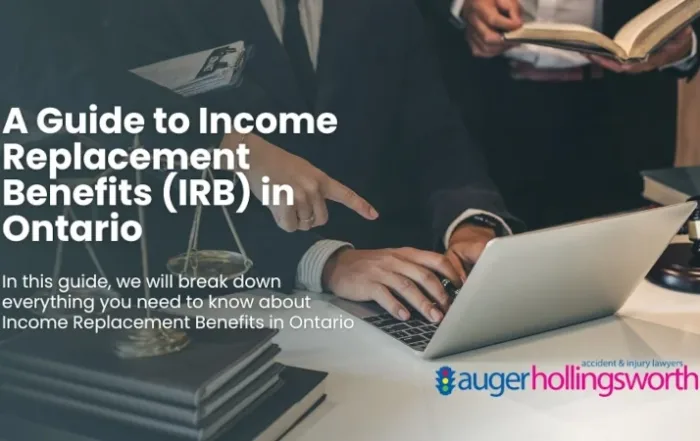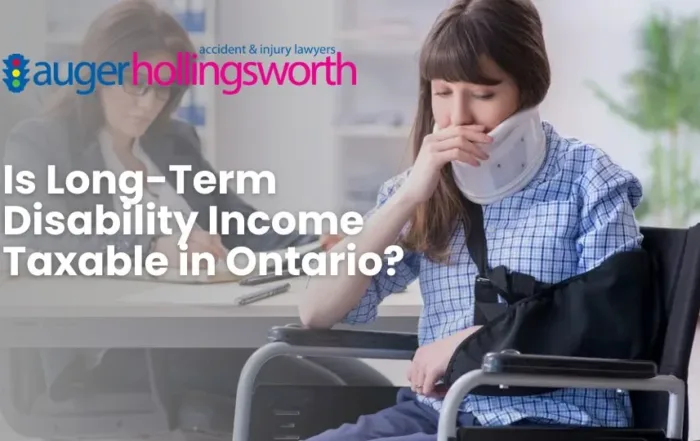Ottawa Personal Injury for Children
Top 4 Reasons Parents or Guardians Should Speak to a Lawyer Right Away
1. Time limits: Also known as limitation periods, these are deadlines after which you CANNOT advance your child’s claim for compensation or after which it is more difficult to do so.
Examples:
- Your insurance adjuster may tell you that your child has until his or her 20th birthday to sue. This may be technically true, if you want to forgo any claim by adult family members for care guidance and companionship lost as a result of the accident. For some cases, these can be large amounts!
- Some claims against municipalities (Cities, Towns, etc.) are subject to an incredible 10-day limitation period. You will want to speak to a lawyer right away to see if this limit applies in your child’s case.
2. Insurance companies are not your child’s friend when it comes to an accident case. They may be pleasant, but don’t be fooled. We have encountered many parents who were dealing with the insurance adjuster directly and who were about to sign settlement documents when they realized they should get legal advice.
What happened? We advised them that the settlements proposed by the insurance companies were inadequate and would have badly under-compensated the injured child.
Insurance companies have an opposite interest to you and your injured child. The insurer and the adjuster have a single mission: to maximize profits for the insurer by controlling costs.
Your interests are totally different. You want to make sure your child injured in Ontario in a car accident or other type of accident receives all the financial security, insurance benefits, medical and rehabilitation coverage and compensation for future lost wages and earnings which he or she is entitled to get. This compensation includes money for pain and suffering, loss of enjoyment of life, disability, scars, burns, fractured bones, brain or head injuries, spinal cord injury, paraplegia or quadriplegia.
An injury lawyer committed to representing children can help you deal fairly and negotiate properly with an insurance company.
What does this mean? For starters, apart from the police and medical support, you should not describe the accident to anyone, especially an insurance adjuster, without speaking to a lawyer first.
Will an adjuster ask you for a statement? You bet. Just say “No thank you. Not at this time.” Even if they show up at the hospital or at your home, it is okay to decline. You may feel awkward saying no, many people do. However, a few awkward moments are much better than compromising your child’s case.
3. If you delay, it is much harder for your lawyer to collect the needed evidence.
When a child is injured in a car accident, the best evidence to show how the accident happened is collected right after the accident, for example, skid marks, crash debris and the vehicles themselves.
Did you know that some cars have “black boxes” similar to an airplane? If it is not too late, we can get a court order to preserve the black box before the car goes to the wrecking yard.
Think about a slip and fall accident that happens on the ice in February. It will not be easier to put the pieces together in June than it was in the days that followed the accident.
Witnesses are another important consideration. They have to be found– which is easier sooner rather than later. They also have to be interviewed, ideally before the insurance company reaches them.
You may think you can take these steps yourself. And maybe you can. But is that the best use of your time when you have an injured child to case for? An experienced lawyer will hire the investigators and engineers necessary to collect evidence that could make or break your child’s case.
4. Find out now, not later, how insurance companies and their lawyers can use your child’s medical records against your child.
By speaking to an experienced child injury lawyer you will learn how to talk to your child’s treating physicians. For example, many parents are so relieved that their child is walking and talking after a serious accident that they overlook other behavioral or emotional changes which could signal post-traumatic stress syndrome.
A pediatrician or family doctor may be looking for physical symptoms too and may not notice your child’s other symptoms. The result? If it is not written in the medical records from early on, the insurance company may suggest that any of these issues are not related to the accident and the child may miss an important assessment by a pediatric neuropsychologist or neurologist. These specialists can provide the proper diagnosis, care and rehabilitation. They can also make a big difference to your child’s case.














